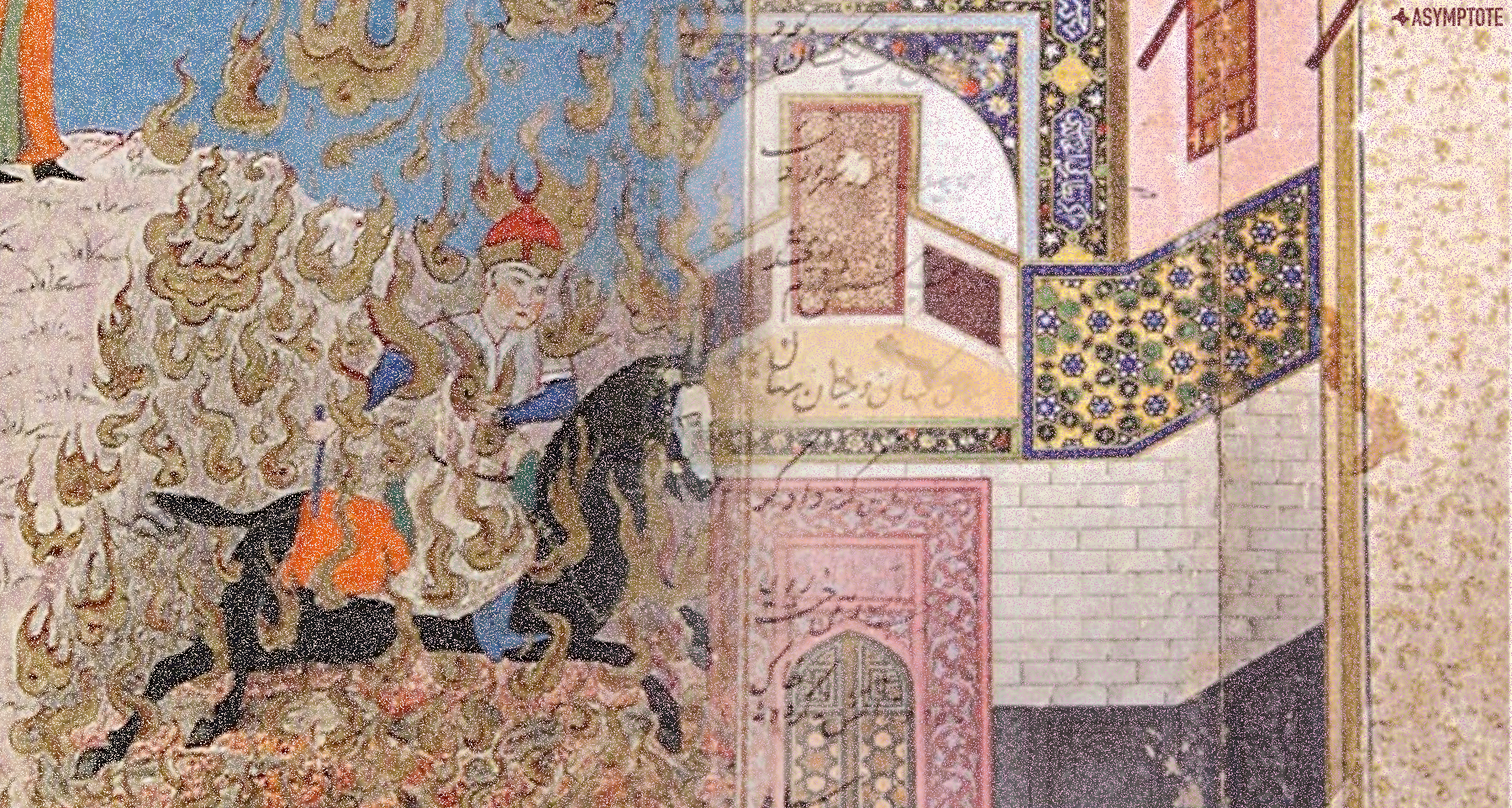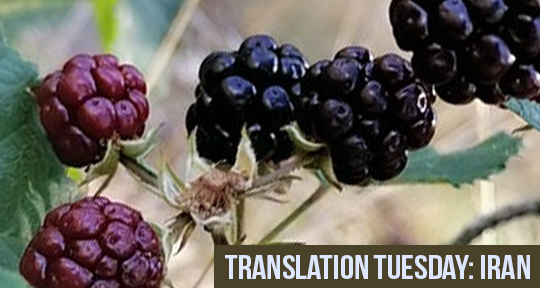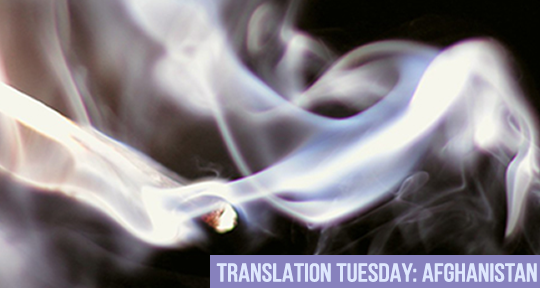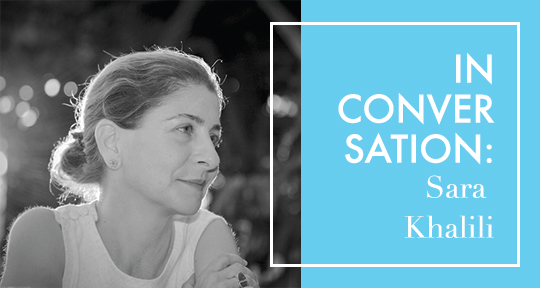In our new column, Retellings, Asymptote presents essays on the translations of myths, those enduring stories that continue to transform and reincarnate. In this essay, Claire Jacobson covers the path of the Seyavash cycle through time and cultures, its adoptions and adaptations.
In Khurasani poet Abu al-Qasim Ferdowsi’s epic the Shahnameh, symbol of innocence and hero-prince Seyavash undergoes a false rape accusation, a martyr’s death, and a symbolic resurrection. This tale—the pure hero is falsely accused of rape and suffers either a literal or symbolic death and resurrection as a result—is found across cultures and time, often beginning with the hero’s virtuous rejection of a lustful woman: the incorrupt Seyavash recoils from his stepmother Sudabeh’s declarations of love, as does the Khotanese version of the Mauryan prince Kunala from Queen Tishyaraksha; the righteous Joseph (Yusuf) flees Potiphar’s wife, Zulaikha; the chaste Hippolytus rejects Phaedra’s advances; the honorable Bata refuses to betray his brother Anpu by sleeping with his sister-in-law. Much like Seyavash, each of these men are then written into the cycle of accusation, death, and resurrection.
Many of these myths coexisted in a shared discursive space, but not all of them continued to develop and change as living stories. After the Islamic conquest of the Iranian plateau, several began to converge. By the early Islamic period, the tale of Yusuf and Zulaikha was considered by literary critics to be the same story as Seyavash and Sudabeh but in a more appropriately Islamic format, and many of the rituals that had long been practiced to celebrate Seyavash were repurposed to commemorate the death of Husayn at Karbala. In this case, ritual (by which I mean the popular practice of religion) seems to act as a medium of translation, carrying the shape of the re-enacted story forward even though the language, notions of gender, and cultural landscape were all slowly changing as the millennia passed.





